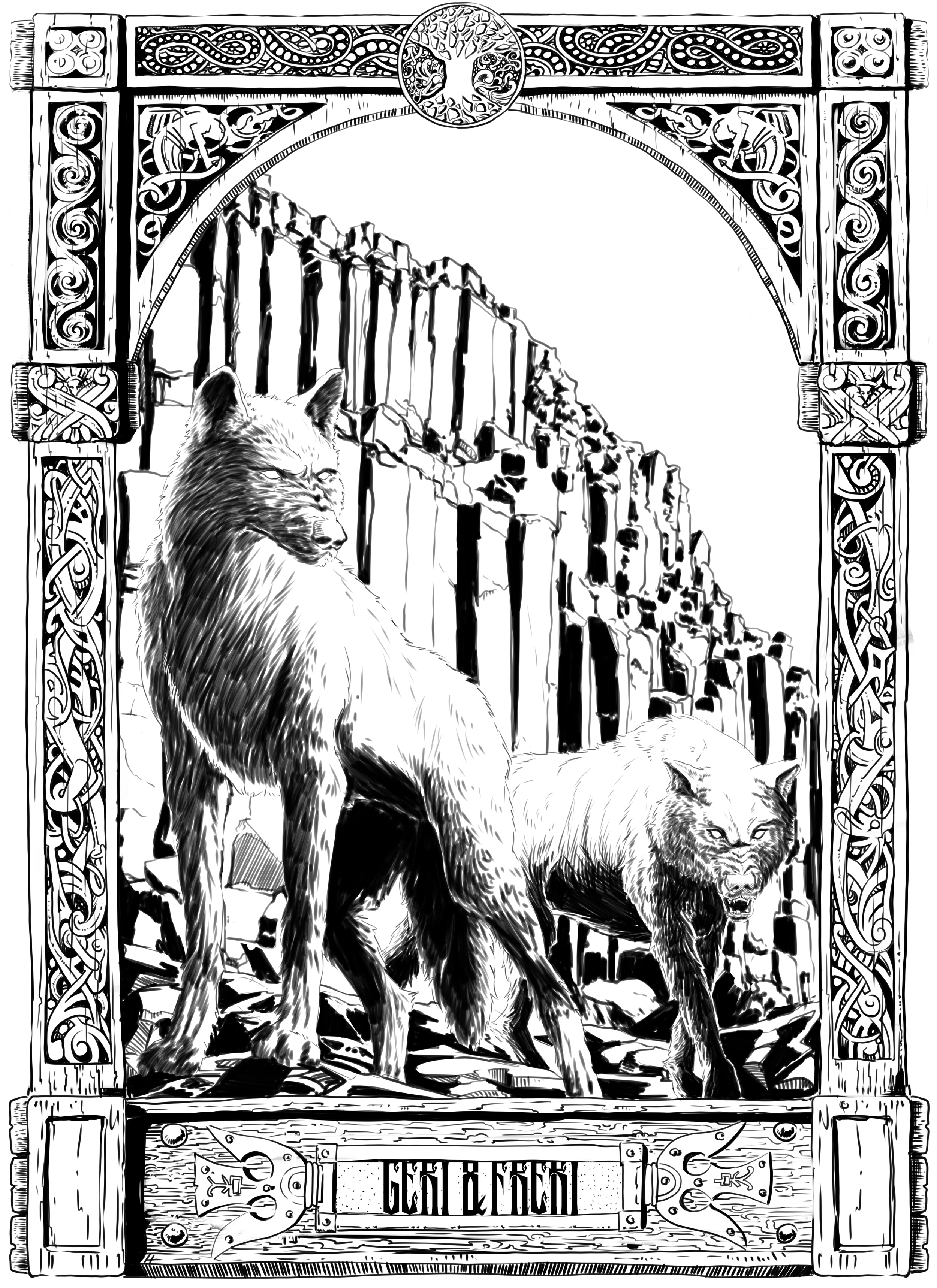Geri and Freki
Before there were golden halls and ringing mead cups, before the myths were bound into stories and sung, there were wolves at Odin’s feet. Geri and Freki—whose names mean “the ravenous” and “the greedy”—are more than pets, more than beasts. They are the teeth of the wild that Odin never tamed. Always by his side, always watching, they are hunger given form, the instincts that snap and snarl beneath wisdom’s cloak. In the sagas, they are rarely given voice, but their silence speaks volumes. They are ever-present as Odin feasts, though he himself does not eat—his nourishment is knowledge. The wolves, though, are fed from his hand.
Their exact origin is not told in the myths, but it hardly matters. Geri and Freki are older than loyalty and more faithful than blood. They follow Odin into war and prophecy alike. In the shadow of Yggdrasil, they wait. At the gates of Valhalla, they pace. They are not monsters, not like Fenrir, but they wear the same fur, carry the same echo of ancient, primal fear. They remind us that even the Allfather walks with beasts. And sometimes, it’s the beasts who see what gods will not.
Visual Description:
Geri and Freki are often portrayed as massive wolves, taller than a man’s shoulder and lean with predatory grace. Their coats are dark grey and silver, ragged and thick, flecked with frost or dust from the nine worlds. Their eyes burn amber or gold, sharp and unwavering, reflecting the firelight of Odin’s hall and the blood on the battlefield. They move silently, with the eerie stillness of something that always knows where you are.
In artistic renderings, they are typically shown flanking Odin’s throne, one on each side—never resting, always alert. Their teeth are bared in stillness more than snarl, as if to say they do not need to threaten; they have already chosen to be merciful. Around their necks, runed collars of iron or leather sometimes appear, more ceremonial than functional. They are not caged, not leashed. They are trusted. They are feared. They are the gods’ reminder that not all wild things are banished from the firelight. Some are invited in.
